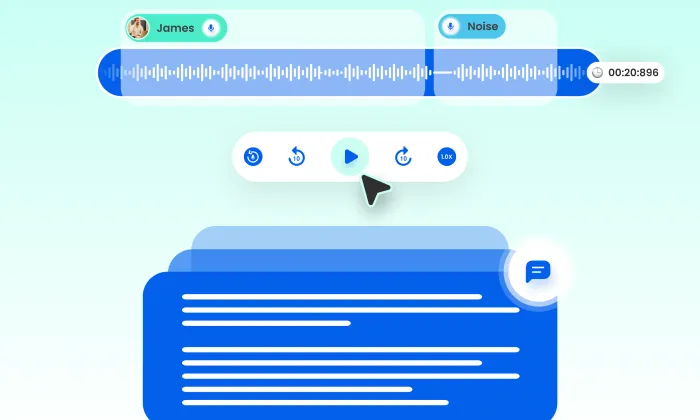What is federated learning for privacy-preserving ASR?
Federated Learning
Privacy
ASR
Federated learning is revolutionizing how we approach privacy in automatic speech recognition (ASR) systems. By enabling models to train on decentralized data, it offers a way to enhance user privacy without compromising the quality of speech recognition.
What is Federated Learning?
Federated learning is a decentralized machine learning approach where models are trained locally on devices rather than centralizing data on a single server. In this framework, only the updates from local models, such as changes in weights and gradients, are shared with a central server. This server then aggregates these updates to refine the global model, which is subsequently redistributed to all participating devices.
Why Federated Learning Matters for ASR
- Privacy and Compliance: Traditional ASR systems require sending sensitive audio data to central servers, posing privacy risks. Federated learning mitigates this by keeping data on users' devices, significantly reducing the risk of unauthorized data access. This approach aligns with stringent data protection regulations like GDPR, ensuring compliance while maintaining high standards of user consent.
- Diverse Data Utilization: ASR systems thrive on diverse datasets that capture a wide range of accents, dialects, and environments. Federated learning allows companies to harness this diversity while respecting privacy, resulting in more robust and accurate models.
How Federated Learning Works in ASR
- Local model training: Devices like smartphones train ASR models using local data, adapting to users' voices and contexts.
- Model update sharing: Devices share model updates, not raw data, with a central server.
- Aggregation: The central server aggregates updates to enhance the global model.
- Model distribution: The improved model is shared back to devices, allowing continuous refinement.
Real-World Applications and Benefits
Federated learning is being successfully implemented in various ASR applications, such as voice assistants and mobile apps, where privacy is paramount. By leveraging this approach, companies can improve model performance and generalization across different user environments.
Considerations and Challenges
While federated learning offers many benefits, there are trade-offs:
- Communication overhead: Regular updates can consume bandwidth, particularly in low-connectivity areas.
- Device variety: Differences in device capabilities can affect training speed and model consistency.
- Data quality: The model's performance relies heavily on the quality of local data. Biases can emerge if not managed properly.
Common Missteps in Implementation
Organizations must avoid pitfalls like neglecting user consent or failing to evaluate model performance continuously. Collaboration among data engineers, privacy experts, and machine learning teams is essential for aligning objectives and ensuring successful outcomes.
The Future of ASR with Federated Learning
Federated learning represents a pivotal strategy for privacy-preserving ASR, enabling organizations to leverage user data while adhering to privacy norms. By understanding and addressing its challenges, companies can enhance their ASR systems, ensuring they are robust, reliable, and trusted by users.
FutureBeeAI offers scalable data collection and annotation services that align with federated learning principles. Our expertise in speech data collection and speech & audio annotation makes us a reliable partner for your ASR enhancement needs. Consider collaborating with FutureBeeAI to prototype federated learning-based ASR solutions tailored to your specific requirements.
What Else Do People Ask?
Related AI Articles
Browse Matching Datasets
Acquiring high-quality AI datasets has never been easier!!!
Get in touch with our AI data expert now!








